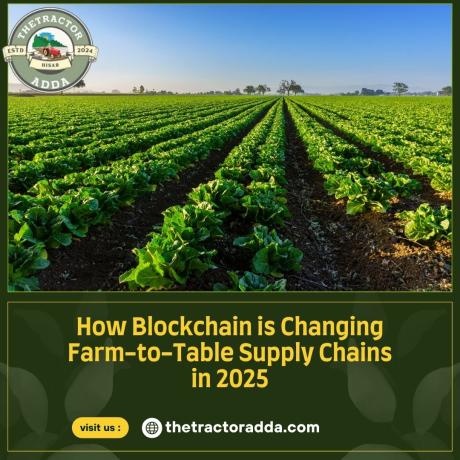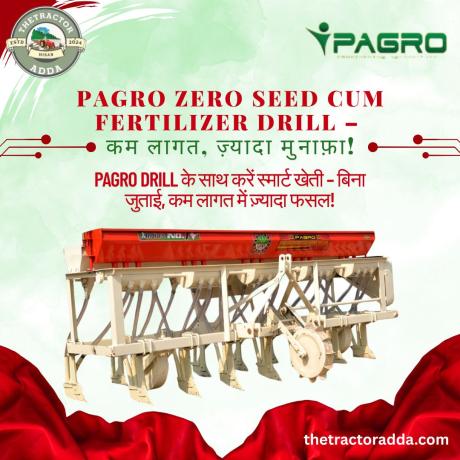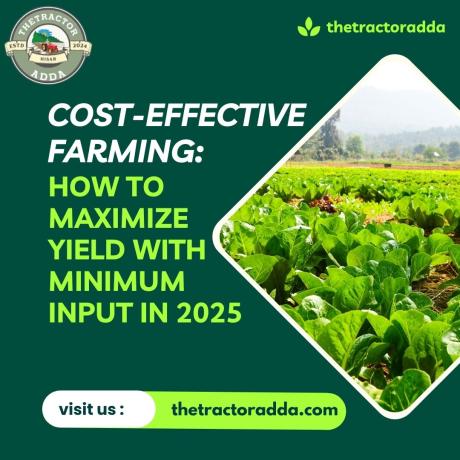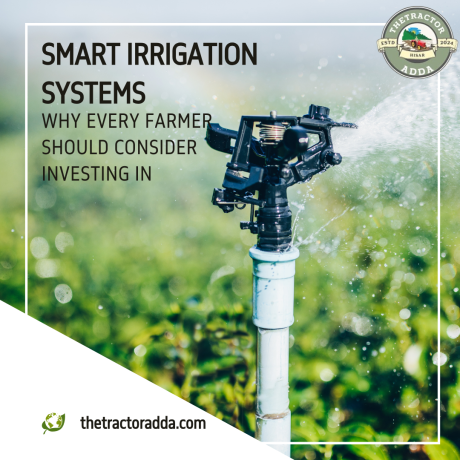How Blockchain is Changing Farm-to-Table Supply Chains in 2025

Blog Description
In recent years, blockchain technology has emerged as a game-changer across many industries, and agriculture is no exception. From ensuring food safety to providing greater transparency, blockchain is transforming the farm-to-table supply chain by allowing farmers, suppliers, distributors, and consumers to track products with unprecedented ease.
In 2025, blockchain is becoming a cornerstone of agri-tech solutions, bringing about more efficient, secure, and transparent food systems. Let’s explore how blockchain is shaping the future of farming and food distribution.
???? What is Blockchain and Why is it Relevant to Agriculture?
Before diving into its impact, let’s understand blockchain. In simple terms, blockchain is a decentralized digital ledger that records transactions across multiple computers. Once recorded, these transactions are tamper-proof, meaning that data cannot be altered without the agreement of everyone in the network.
In agriculture, this technology is used to:
- Track food origin and ensure transparency
- Verify product authenticity for both consumers and producers
- Simplify supply chain processes for faster, more accurate deliveries
???? Blockchain Enhancing Transparency in the Supply Chain
One of the biggest issues in traditional farm-to-table supply chains is lack of transparency. Farmers, distributors, and retailers often struggle to verify the exact origin and handling of food products. This leads to inefficiencies, food fraud, and a general lack of consumer trust.
Blockchain’s distributed ledger ensures that every step in the supply chain—right from planting to harvesting, processing, and distribution—is recorded transparently. As a result, consumers can know exactly where their food comes from, what conditions it was grown in, and how it was transported.
???? Example: With blockchain, if you buy a bag of rice from a local grocery store, you could trace its journey from the field to the table, ensuring its quality and safety.
???? Improved Food Safety and Traceability
One of the most important benefits blockchain offers to the farm-to-table system is enhanced traceability. In case of contamination or spoilage, blockchain makes it easier to track the product's journey and identify the source of the issue.
For instance, if a batch of tomatoes gets contaminated, farmers and retailers can pinpoint exactly which farm, field, or shipment the product came from, eliminating the guesswork that often leads to mass recalls.
????️ Food Safety Example: A Blockchain-enabled traceability system could instantly pinpoint the location of a contaminated shipment, ensuring quicker action and reducing the impact of foodborne illnesses.
????️ Blockchain Streamlining Payments and Transactions
In the traditional agricultural supply chain, payments and transactions can take days or even weeks, creating cash flow issues for farmers. With blockchain, transactions can be processed instantly and securely, which improves cash flow, reduces delays, and ensures that farmers get paid faster.
By using smart contracts built on blockchain, transactions between farmers and distributors are automatically executed when conditions are met, making payments faster, simpler, and more secure.
???? Boosting Sustainability and Ethical Farming Practices
Blockchain can also help promote sustainable practices in farming. With transparent records, farmers are encouraged to adopt environmentally friendly methods to prove that their products meet sustainability standards. Consumers are more likely to choose products with eco-certifications, knowing they are supporting ethical and sustainable farming practices.
???? Sustainability Example: By tracking a product’s entire journey, blockchain can show whether the food was grown using water-saving irrigation, organic fertilizers, or ethical labor practices.
???????? The Role of Blockchain in Empowering Small Farmers
For small-scale farmers, blockchain provides an opportunity to reach larger markets by ensuring that their products are traceable, trusted, and transparent. Smart contracts enable small farmers to receive timely payments and enter more global markets without intermediaries, reducing costs and ensuring fair compensation for their efforts.
???? Future Outlook: Blockchain in the Agricultural Revolution
Looking ahead, blockchain is poised to become a standard feature in global agricultural supply chains. As technology becomes more accessible and affordable, farm-to-table blockchain solutions will continue to evolve, providing more farmers and consumers with the benefits of transparency, traceability, and security.
2025 is just the beginning, and as adoption increases, the potential for blockchain to revolutionize food systems is limitless.
At TheTractorAdda.com, we continue to explore innovations like blockchain that are reshaping the agriculture industry. Stay updated with the latest trends and solutions for farmers in India!
TheTractorAdda.com is your go-to platform for insights on modern farming technology, tractor updates, and more. Visit us often for more in-depth articles on the future of agriculture!


